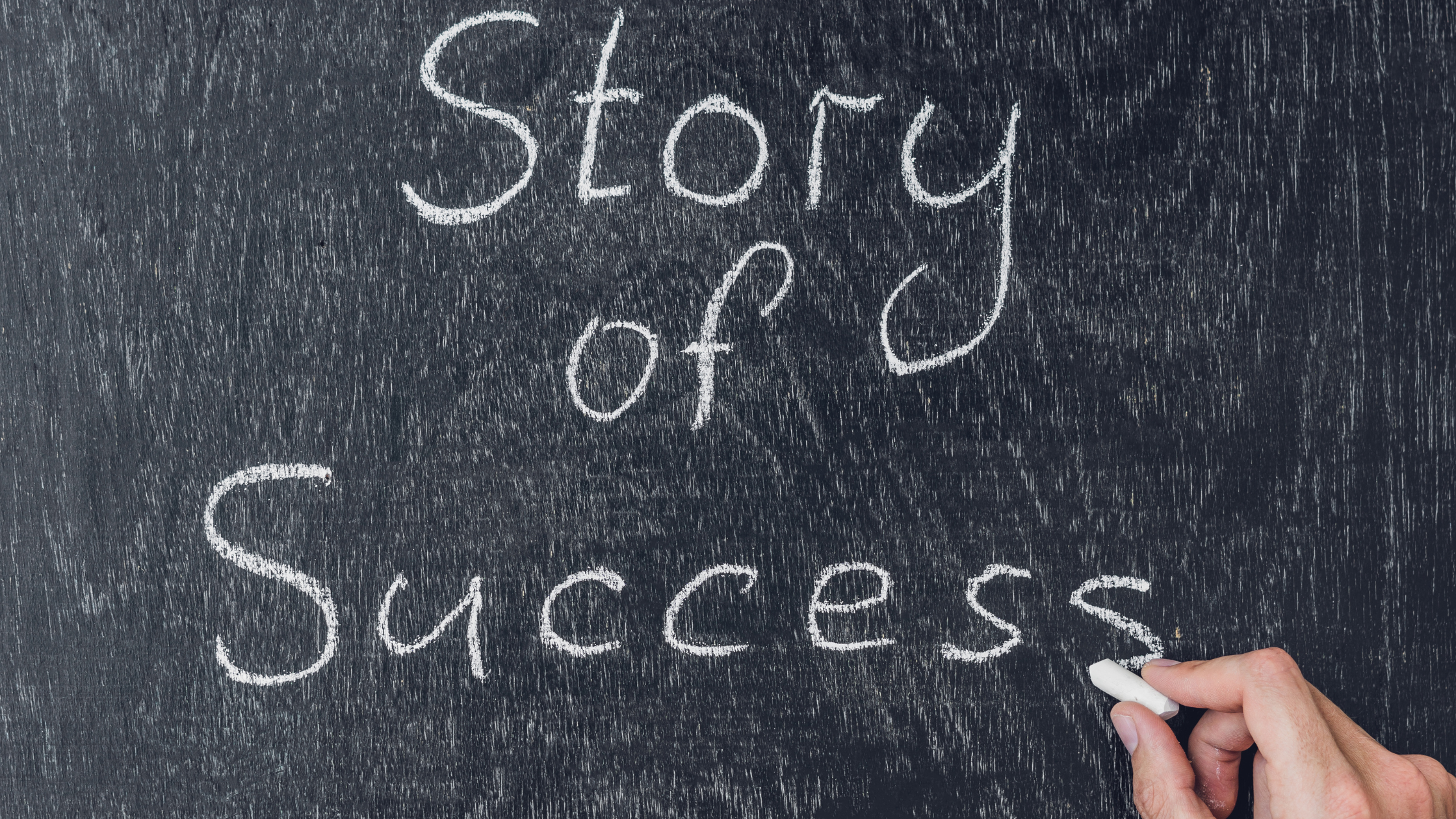We have talked with Cecilia Tham about community building, silent brainstorming, becoming self-confident and feeling very comfortable as a minority.
Cecilia Tham, is the cofounder, principle and future synthesist at Futurity Systems.
In 2013, she created Makers of Barcelona, the first collaborative Coworking community in Barcelona, Spain. She co-founded allWomen, an academy for women in tech and was a Senior Social Technologist at Telefonica Alpha, the European moonshot factory, among many other roles. She is a passionate female entrepreneur, a well-known public speaker, and educator.
Impulse4Women Question: Who is Cecilia Tham?
Cecilia Tham:
Well, Cecilia is always evolving and transforming. I think I took a very non-linear path. I studied biology, thinking I was going to be a doctor. And I studied architecture because my grades weren't good enough to go to medical school. And then I came to Barcelona and found entrepreneurship really attractive. And then from that path, it started to grow.
When I first came to Barcelona, I had a hard time, to be honest. As an expat it's a struggle for anyone in any country. When you land here and you find yourself with the need to connect and network, that social pathway is really crucial. And I was lacking that. So I thought, “what better way to start my entrepreneurship than to create a network for other people?” That was my way of getting my feet wet with the first venture: Makers of Barcelona. It was the first large scale coworking community. I emphasized the word community because we really doubled down on connecting people, not just expats, but expats to locals, creative to strategy and startup people to foster a community of people that are thriving, to mix stuff.
From there, I just got more itchy about starting new things. Coming from an architectural background I started what's called FabCafe, which is this coffee shop where people can come in and digitally fabricate stuff with laser cutters and 3D printers. And that was back in 2013, when people hadn't even heard of 3D printers, right? So we really wanted to create this hub of creators and makers and entrepreneurs, and we wanted now to give them tools to be able to start making things. And additionally, because it is a coffee shop, it adds another space where people can overlap from the wider public to our kind of private coworking.
I4W: You are also co-founder of allWomen. How did that come up?
Cecilia:
I remember vividly. One day I went with one of my colleagues to a startup event. And it was back in 2016. And of the 29 speakers 26 were men. I looked at her and she looked at me and we stared at each other and we said, well that can't be it. I know there are many very talented women out there, women in tech, why are they not on stage?
And so we made it our mission to create a pipeline for women in tech. And so that's when allWomen came up. Today allWomen has an amazing CEO who was also my cofounder: Laura Fernandez.
So, back then we organized boot camps to funnel more women who already have a degree or a career like a lawyer or biologist, but then add a layer of technology on in their curriculum and their capabilities. Take for example machine learning or artificial intelligence from the perspective of a lawyer. How can I apply these new technologies and be able to speak about it and manage the team with these technologies in mind as a new capability so that there will be more women, in tech and in the leadership roles?
I4W: How was your transition from Telefóncia Alpha to Futurity System?
Cecilia:
I got this amazing opportunity to work with Telefónica in 2017. At that time Telefónica was building a far-future-horizon type of department called Alpha. Alpha is what is called a moonshot factory. A moonshot factory is a type of innovation unit where they look at really hard problems, very big in impact, that have a basis in technologies and that could potentially have a basis for some kind of business innovation.
And so coming out of that with my startup bug, I started my next venture which is Futurity Systems - Future as a Service. This was in the midst of COVID and really crazy. It was also a perfect moment because all of a sudden people, companies and organizations found themselves unable to handle the unknown of COVID. But they realize that there are going to be many other things that might happen, apart from COVID. The entire ground is shifting - from the future of work to the future of medicine and science. All of these things are shifting without us having real tools or understanding of how to navigate the unknown. We really focused on how we can provide - not just the framework - but also the mechanics of confronting and building resilient companies.
I4W: You are an expert in community building, especially for women. What do startups that focus on strong communities have to take into account?
Cecilia:
When people are starting their companies they often jump right into funding. Like how much money can I raise, right? I think, very often they forget the community aspect, the network. It is just as crucial, I would say, if not more, as the basis before you start your funding. Because through these partnerships you're not only learning things, you're establishing a longer type of relationship with people with whom you're going to be either doing business with. Either they will become your investors or they will become your client or they will become a source of knowledge. Money cannot bring that. We approach it with a multi-level way of community building. So you have your immediate contact with the people that are inside the space with whom you share and you're building a very strong bond.
But you also have a really interesting kind of unplanned type of relationship. Let me give you an example. When we started Futurity Systems, we had this really interesting idea of building a prototype for an VR experience in the Metaverse for the Mobile World Congress.
The conversation started mid-February 2022 with the community. One and a half months larter, we built the prototype and launched it for almost more than 60 people for the experience on site. That included an app, a VR experience and building the whole Metaverse. The interesting thing is that we built all that with our Makers of Barcelona community, data scientists and blockchain developers. That is the kind of community that you're thriving for.
My advice is not to think about a too closed-door type of community. Meaning, this is a community of lawyers and you only have lawyers. At Futurity Systems we have 3 pillars: one is the creative community. These are your designers and artists. Then you have more business and strategy minded people. These are your startup founders. They have experience in launching companies and in marketing. Then we have another third arm: sciences and academics. They have a very different perspective on these things. And I think these are three very interesting pillars because when you start mixing them, then you can create comprehensive and complex scenarios.
I4W: Do women have a special, natural talent when it comes to community building?
Cecilia:
I like to think so because we tend to be more patient and we listen more. As we listen more, we're absorbing more. But that doesn't mean that we're less active, it's just that we're processing more. I want to bring up another example and that in Futurity Systems we use this technique called Futurescaping. It's a brainstorming technique. So when you think about brainstorming, people start throwing out answers like what about this and what about that and what happens? I don't know if you can tell. I'm Asian. I used to be very quiet. I was very quiet, very submissive, and very feminine. And then in a very masculine, male dominating kind of startup and science world, you have to raise your voice and you have to force yourself. But it's not in my nature. And I don't think other women might understand that, too. In the Futurity scaping brainstorm technique, we intentionally remove that and so it's a quiet brainstorming. And so we write down our ideas without putting our names and we don't know if it's from a female or a male colleague. This way, all the soft voices can also be heard. I think that is the strength of understanding.
The dynamics of building communities that kind of be inclusive of all sorts of different voices are crucial. If you can't add these minority voices to any process, how can we start thinking through their perspective? So in my company, when we talk about futurism, we often talk about futurism from the west. But there are other type of futurism, like Femfuturism or Afrofuturism or Queer futurisms, and we force ourselves to think about, put ourselves in their shoes. And I think these types of lenses are not innate to our community building. But we have forced ourselves to be more inclusive. Otherwise iInclusion will always be in the back of our mind instead of in the front of our mind.
I4W: What were your major challenges as a female founder and how did you overcome them?
Cecilia:
My journey serves as a case study andI think this relates to many other women as well. When I came to Barcelona 20 years ago, I was thinking less of myself: “Oh, poor me. I'm a woman in a man's world”. I am a minority in a mostly Western world. I am an immigrant”.
So I started putting all of these very negative labels on myself and I was victimizing myself. And a lot of women do that because it's almost easier to just say, oh, poor me, right? But at some point, I realized that I might not be able to change how people see me, but I'll be able to change how I see myself. So I took all the same labels and I said to myself, “You know what? I am not a minority. I am unique. I am not an immigrant. I am international. I am not a woman”. I am not just a mother, which is great, there's nothing bad about it but I am multitasking. I'm also an educator. So when you start flipping those labels, you find the value in things and you start using those labels, forcing other people to label you that way and see those values in me. That we have to change this label to label ourselves, not to let others label us and to create an identity that can change things in a world that is not dominated by us, by women.
I4W: What do we have to do as a society to encourage women to become startup founders, investors, entrepreneurs, leaders?
Cecilia:
There are legacy infrastructures that are built and that already have biases and so it's a very complex compound problem. But when we're talking about what we can do ourselves as women, that's our starting point. This is our leverage, this is our Trimtab and this is our power. So first advice: Don't stop before other people stop you. So when there's an opportunity for funding, go for it. Don't question yourself hey, am I good enough? Should I apply? You should always apply. You should always go for it. Never stop yourself before other people stop you. And I see that a lot with job offers. A man always applies even if he doesn't fit the full profile.Whereas a woman is likely to check 99.9% of all requirements before even applying. So of course we can't compete! And often we come across less vocal and less confident when we talk about our ideas. So it makes us sound less knowledgeable when we probably know more. So we can start from ourselves.
The second advice, especially to female founders: don’t only focus on raising money. I'm much more in favor of companies that already can be functional, operational, sustainable and profitable on Day One than companies that sell an image and raise a whole lot of money and never make a dime. Because there is more than one way to be an entrepreneur building that community, building that social wealth, which is what I'm calling all of these different networks of people. Building a company that is sustainable, functional, that has real value to your users and clients.
And another thing. Women tend to be perfectionists. We want everything to be perfect before it goes to the market, when the strategy actually is to get it out of the market as fast as possible so that you can gain insights as fast as possible and incorporate those in the iterations of your MVP. Because it's all in our head, it's all in those assumptions. We think that's what they need, but in turn what you need is answers and insights. And so that would be my strategy. My advice is to move fast and learn fast. Start small, learn fast and think big.
I4W: Cecilia, thanks for the interview.
%20(2).png?width=2240&height=1260&name=202211%20RRSS%20Expert%20talk%20(Blog%20Banner)%20(2).png)


